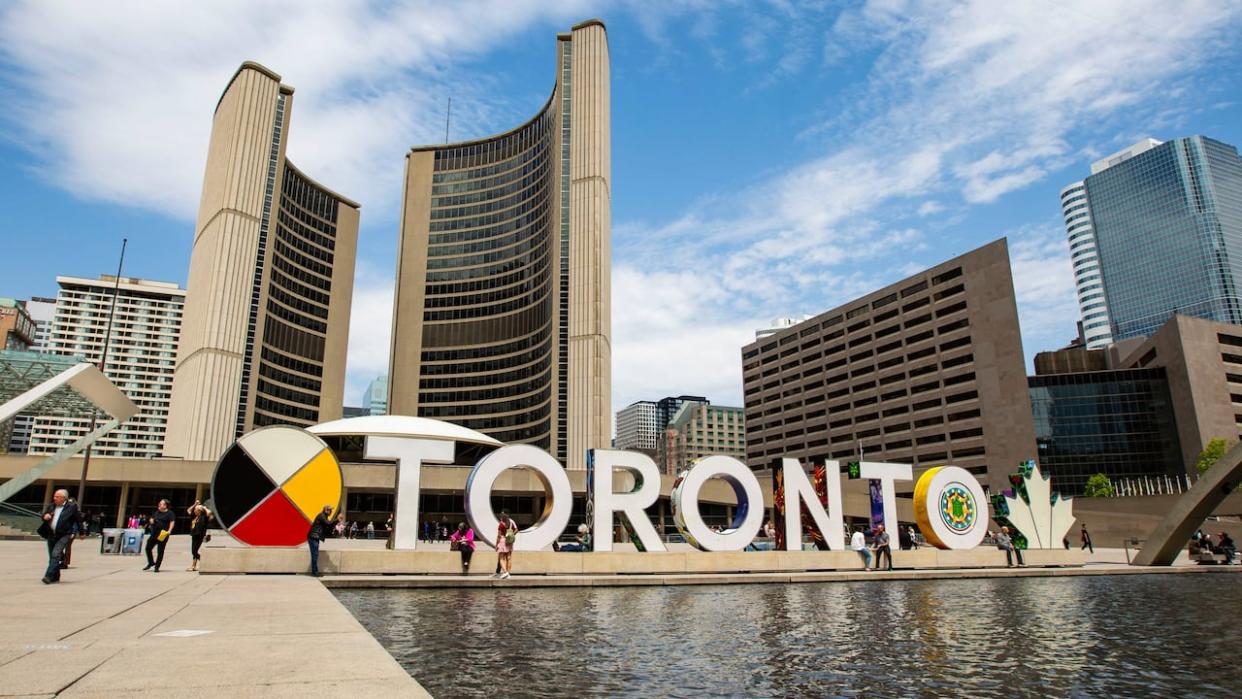Toronto to vote on housing plan for major streets amid opposition

- Oops!Something went wrong.Please try again later.
- Oops!Something went wrong.Please try again later.
Toronto councillors are set to decide on a plan to permit more townhouses and small apartment buildings on major streets, while some groups are pushing for a pause on the proposal.
The Major Streets plan, approved by the planning and housing committee earlier this month, will be debated by the council starting today. The proposal aims to relax zoning bylaws to allow buildings up to six storeys high in various parts of the city.
This long-developing plan could enable buildings with up to 30 units on many major streets. However, some residents' associations and city councillors argue the city is rushing the proposal.
Mayor Olivia Chow has expressed cautious support for the change, stressing that it's another measure to help address the city's housing crisis.
"I believe in building housing. We have a housing crisis and having gentle density, which is what's being recommended, is a good way to go," Chow said after the report was released earlier in May.
"I believe together, we'll come up with a solution that could encourage homeowners to build and to bring in a bit extra income and also provide much desperately needed housing for people coming to the city."
Report on increasing unit cap expected at council
The report comes to council as questions remain about its viability as a tool to get shovels in the ground on new projects. A city feasibility study warns that even if the council loosens the zoning restrictions, a 30-unit cap on the projects will make them financially unviable for developers in places like Scarborough.
Developers say the profit margins on smaller projects can be negligible, pushing them to build larger projects.
The planning committee supported a motion from Coun. Brad Bradford to investigate increasing the cap to 60 units and doing away with other restrictive parts of the plan. Staff will report back on that directly to council at its meeting this week and some are concerned that will mean it bypasses public feedback at the committee level.
"Excuse me if I seem overzealous to move this forward," he told the committee. "I just sort of feel like it's been four years. And too often that's the case at city hall."
The Federation of North Toronto Residents' Associations wrote to councillors Monday, saying it supports the plan in principle but is urging them to send it back to staff for more work. They say some streets considered "major" in the staff report don't qualify and staff have given little rationale for what constitutes inclusion in the plan.
"This is one size fits," co-chair Geoff Kettel said in an interview with CBC Toronto. "It's a blanket across the whole city. But you've got to look and see, well, what would be the implications locally?"
Unique features of some streets must factor in
The group says some portions of major roads covered in the report, like Avenue Road and Kingston Road, have unique features in places that must be considered when a development is proposed. Some sections of those roads contain heritage properties or are home to conservation areas that aren't suitable for the larger developments, they say.
The group would like to see more consultations and then have staff to report back to each community council ahead of re-introducing the policy.
Kettel said the group is also concerned about Bradford's motion not being debated the committee level.
"This is not good process in a democracy," he said.
Coun. Stephen Holyday has voiced opposition to the plan, saying residents in his Etobicoke ward and resident associations have pointed out weaknesses in the proposal. It could use more work from staff, he said.
"I believe that the policy is flawed and unresolved," he said during the committee meeting.
A move to cut some streets from the plan was voted down by the committee. Coun. Gord Perks, who chairs the group, rejected the idea of exempting streets in Scarborough at the request of a local councillor.
"It just opens the door to everyone pulling out a street here, a street there, until the whole sweater unravels and we have no policy," he said.

